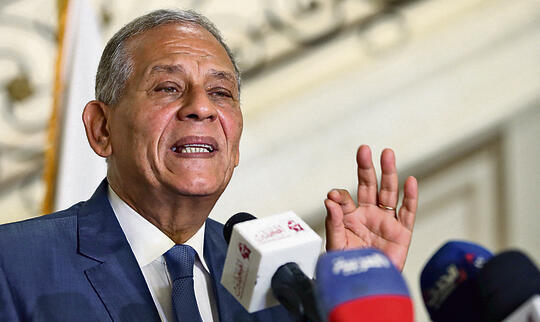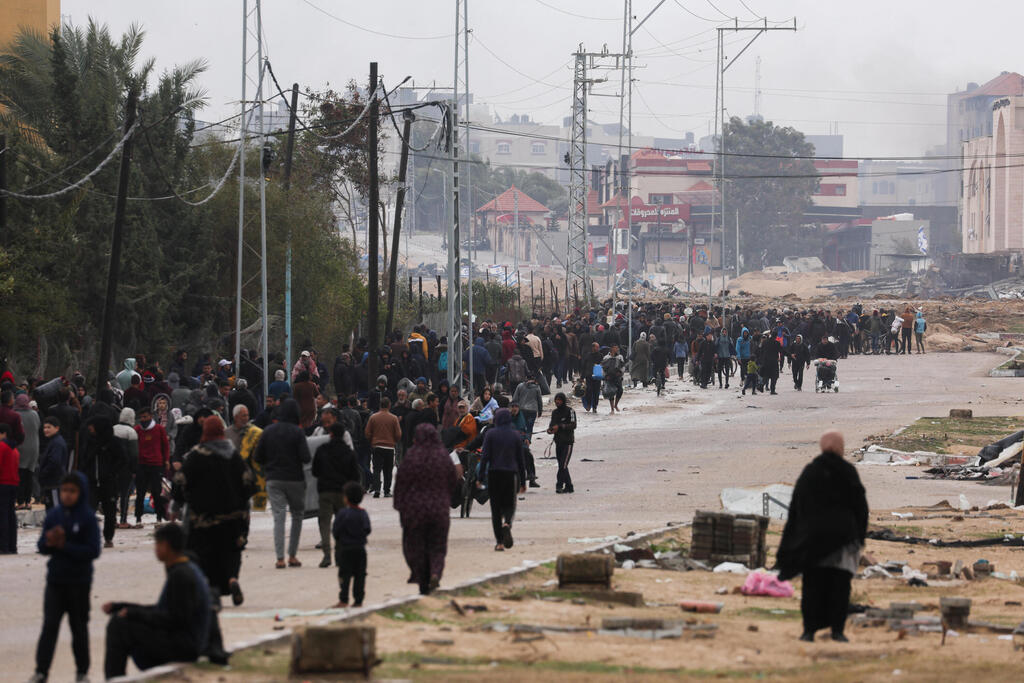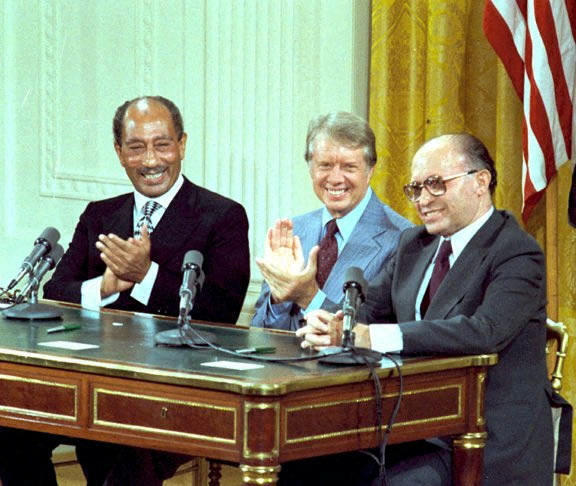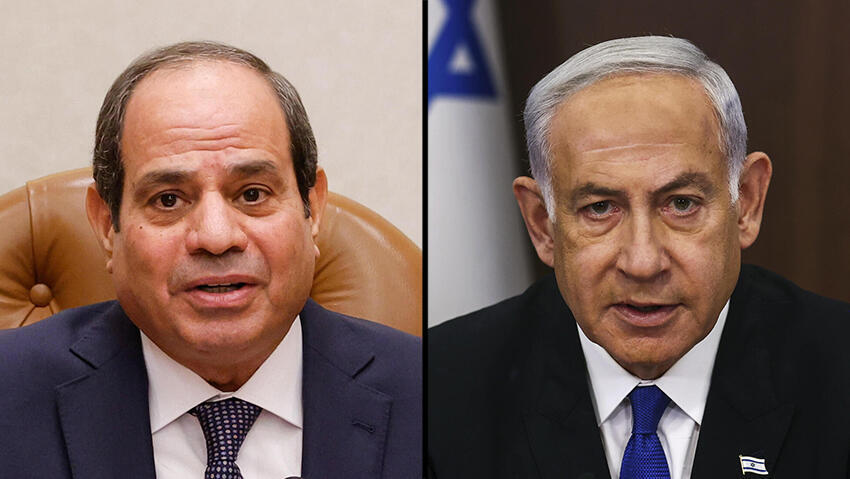"I certainly understand the Israeli outrage of each and every one of you over the terrible murder committed by Hamas in the southern towns and the kidnapping of the Israelis to Gaza on October 7," said Muhammad Anwar Ismat Sadat, the nephew of slain President Anwar Sadat, head of the "Reform and Development Party" and member of the Egyptian parliament.
Read more:
"I certainly understand you, but trust Egypt. We are not your enemies. We have a peace agreement, the parties are meeting and having a dialogue with the aim of solving the problems, but suddenly - out of nowhere - this issue of the Philadelphi Corridor popped up and President al-Sisi is angry with Netanyahu."
4 View gallery


President Sadat's nephew, Muhammad Anwar Ismat al-Sadat
(Photo: EPA-EFE KHALED ELFIQI)
Sadat said that even at the current point in time, many of the interests of Jerusalem and Cairo align. "What do you really think? That Egypt is working against Israel? That Egypt wants to have active tunnels in Gaza? That weapons can be smuggled through the tunnels?" He explained while criticizing Israeli policy, "We believe that the Israeli government can be smarter. If you really care, start listening. We certainly recognize the fact that Israel has the right to defend itself, but you took it to the extremes , without considering Egypt. You are trying to bring the soldiers to the Egyptian border, and it is very embarrassing."
Muhammad Anwar Ismat al-Sadat, 68, like his uncle Anwar Sadat, was born in the village of Mit Abu El Kom in the Monufia Governorate, moved to Cairo, entered political life. He also serves as the chairman of the Human Rights Commission in Egypt.
Like many in both countries, Sadat listened with great attention to President al-Sisi's speech last Wednesday, in which he announced that the Rafah crossing was open 24 hours a day, seven days a week, while "only Israel is putting obstacles in the transfer of food products and medicine into the Strip." The comments came in response to the Israeli delegation's statements in the ICJ, according to which Egypt was responsible for not bringing in sufficient humanitarian aid. "This is absolutely not true, a distortion of reality," said Sadat, "I heard the blatant accusation of Israel's representative in the Court, who made heavy accusations against Egypt as if we had stopped the transfer of aid trucks to Gaza. Check who is creating challenges in the transfer of aid. This is not Egypt."
As senior officials on both sides exchange accusations at one of the lowest points in the almost 45 years of peaceful relations, in Cairo they are reportedly considering taking actual diplomatic steps. "There was a thought to return the Egyptian ambassador to Israel, Khaled Azmi, in protest of Prime Minister Netanyahu's conduct and the fact that he does not bother to consult with Egypt before he goes out to make announcements," Sadat said.
"Pay attention, these are statements that will harm not only the residents of Gaza but also the Egyptian people. And this dialogue is taking place between us, security personnel from Israel are coming to Egypt and holding talks. And the dialogue is conducted, to the best of my knowledge, in complete trust. I know the head of Egyptian intelligence , General Abbas Kamal. He is a worthy man. You have also learned to trust him. With him, a word is a word. And suddenly now you are attacking Egypt?"
As for the future, Sadat said: "If you care about relations with Egypt, which are important to both sides, think once more about how to proceed. With your statements, you weaken Egypt's position in the eyes of our people, and in the eyes of the Arab world. You come and accuse President Al-Sisi of doing nothing to help the residents of Gaza. What is this? All of a sudden you are trying to guilt us? Egypt is obligated to help the residents of Gaza, and to maintain relations with Israel."
When the Egyptian lawmaker was asked what he would do, he said : "Try harder to listen to the Egyptians. We certainly understand your pain from October 7, but the campaign of revenge against the residents of Gaza must be stopped. We are counting the victims: since then we have counted 26,257 dead, most of them are women, children and the elderly, and there are 65,000 wounded, and who knows how many more are missing who were buried under the ruins of their homes in the Gaza Strip."
4 View gallery


Gazans evacuating to Rafah from Khan Younis on foot
(Photo: REUTERS/Ibraheem Abu Mustafa)
In particular, he focused on reported proposals to accept residents from the Gaza Strip in Egypt: "The plan to deport Palestinians to Sinai or the cities along the [Suez] Canal, would not only not come to fruition, but would cause a very deep rift in relations between the countries. Take that into account. "On Wednesday, Netanyahu called President al-Sisi who refused to accept the call. This was certainly understandable to me, as an Egyptian citizen. I recommend that your decision-makers, and first and foremost Netanyahu, think about the relationship with Egypt."



